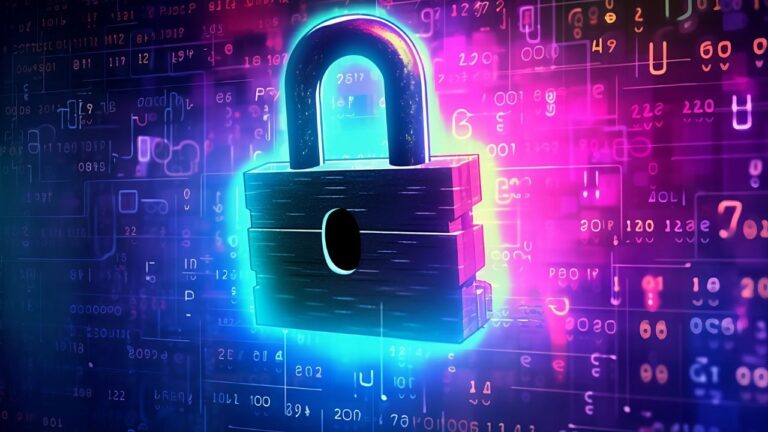
Online dating is all about creating meaningful connections. But to do so securely, we need to navigate the potential pitfalls of password security. In this article, we’re going to discuss the importance of password security, the common mistakes many of us make, and best practices for creating and managing secure passwords.

As digital daters, we entrust a lot of personal information to our dating apps, making them prime targets for hackers. And often, the only thing standing between our personal data and cyber criminals is our passwords. A strong password is your first line of defense in protecting your online dating accounts and your personal information.
Despite the importance of password security, many online daters continue to use weak or easily guessable passwords. A 2020 survey found that 53% of online daters reuse passwords across multiple platforms. This practice leaves them vulnerable to credential stuffing attacks, where hackers use stolen credentials from one platform to gain access to other accounts.
With cyber-attacks on the rise, it’s more crucial than ever to prioritize password security. But how can you create a strong, memorable password that keeps the hackers at bay? Let’s dive in.

Understanding what makes a password secure is the first step to improving your online dating security.
A secure password is unique, long, and a mix of different types of characters. It doesn’t include easily guessable information, like your name, birth date, or simple sequences like “12345”. The National Institute of Standards and Technology (NIST) recommends using passphrases, a sequence of unrelated words, which can be easier to remember and harder for hackers to crack.
In online dating, your password is a key to a wealth of personal information. Not only does it protect your private conversations, but also the personal data you’ve shared with the platform, such as your location, sexual orientation, and payment information.
Common mistakes include using easily guessable passwords, reusing passwords across platforms, or not updating passwords regularly. Another common mistake is sharing passwords with the person you’re dating – a practice that can lead to privacy breaches even in the absence of malicious intent.

Creating a secure password doesn’t have to be a daunting task. Here are some strategies to get you started.
When creating a password, consider length, complexity, uniqueness, and unpredictability. Longer passwords are generally more secure, and a mix of different character types (upper and lower case letters, numbers, and special characters) adds complexity. Avoid using personal information or common words as these can be easily guessed.
Experts recommend using a passphrase consisting of several unrelated words. Adding special characters or numbers can further enhance security. Also, consider using a password generator that can create a strong, random password for you.
Remembering a different password for each account can be challenging, but password managers can help. They store your passwords securely and auto-fill them when you log in, meaning you only need to remember one strong password for the manager itself.
Creating a strong password is only half the battle. Managing them effectively is equally critical.
Password managers not only remember your passwords but also help you generate strong, unique passwords for each account. They can also alert you to potential security breaches and recommend password changes when necessary.
Choose a reputable password manager with strong security features. Use a unique, secure master password for the manager itself, and enable two-factor authentication if possible. Regularly update the software to ensure you’re protected against the latest threats.

If you’re not using a password manager, there are other strategies to remember passwords without compromising security. You could use a system of memorable cues or associations, or write down passwords and store them in a secure place.
Two-factor authentication (2FA) is another layer of security you can add to your online dating accounts.
2FA involves presenting two different types of credentials to access your account, such as something you know (your password), and something you have (a code sent to your phone). This makes it harder for hackers to gain access to your account, even if they have your password.
Some dating platforms now offer biometric authentication, like fingerprint or facial recognition. These features can add an extra layer of security, but remember that biometric data is sensitive information and consider the implications of sharing it with a dating platform.
Looking ahead, we can expect to see more sophisticated authentication methods, such as behavioral biometrics which analyze user behavior like typing speed and mouse movements for authentication. As these technologies evolve, it’s important to keep informed and adapt our security practices accordingly.
Password security isn’t a set-it-and-forget-it kind of thing. Regular maintenance is key to staying secure.

Regular password changes can help protect your accounts from being compromised. How often should you change your passwords? It depends on the account, but a good rule of thumb is every three to six months.
If you suspect your password has been compromised, change it immediately. If you’ve used the same password for other accounts, change those as well. Enable 2FA if you haven’t already.
As cybersecurity evolves, so too will best practices for password security. Stay informed about the latest advice and technological developments to ensure your password security stays up to date.
Password security is a critical aspect of online dating. By creating and managing your passwords wisely, you can protect your personal data and focus on what really matters: making meaningful connections. So, how do you manage your password security? We’d love to hear your strategies and tips in the comments below. Stay secure, and happy dating!
Born in the grit and grind of Detroit, Daniel Firewall's journey has been anything but easy. From an early age, he displayed a knack for understanding systems and breaking codes. His keen analytical mind and relentless pursuit of knowledge led him to become a respected figure in the field of cybersecurity.
Daniel believes in maintaining a balance between the heart and the mind, especially when it comes to online dating. He is fiercely protective of his readers, ensuring they are well-armed with the knowledge and tools they need to navigate the treacherous waters of online dating securely. His mission is simple: ensure everyone can search for love without fearing for their safety.